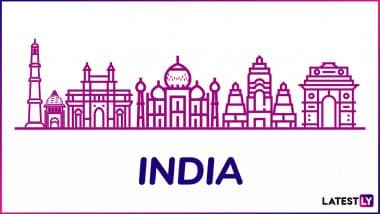New Delhi [India], Oct 26 (ANI): While the unannounced swearing-in of Mahinda Rajapaksa as the new Prime Minister of Sri Lanka on Friday evening took everyone by surprise, the mood for change was building up for the last few days.
People closely watching these developments in Colombo said that the change was a result of a situation developing for the last few months and was not sudden.
"It is not a sudden change. The situation has been developing for the last few months. President Maithripala Sirisena and Prime Minister Ranil Wickremesinghe are from two different parties and differences between them had emerged within months of coming together after the general elections in 2015," Sugeeswara Senadhira, Director (Research and International Media), Presidential Secretariat in Colombo told ANI.
On Friday, former President Rajapaksa was sworn in as the Prime Minister of Sri Lanka replacing Ranil Wickremesinghe.
President Sirisena and Prime Minister Wickremesinghe had come together to form the Unity Government in August 2015 following the general elections in the country. Sri Lanka Freedom Party (SLFP), under the leadership of President Maithripala Sirisena and Prime Minister Ranil Wickremesinghe's United National Party (UNP), were the main constituents of the Unity Government.
SLFP is the main constituent party of the United People's Freedom Alliance (UPFA) which on Friday decided to quit the alliance. SLFP has nearly 70 per cent of the total UPFA seats in the Sri Lankan Parliament.
However, UNP has 105 MPs in the Parliament while SLFP has 95. Prime Minister Rajapaksa too had contested under the UPFA banner which now needs only 18 seats for a majority in the Parliament. "UPFA can easily rely for these 18 seats on the upcountry Tamil parties, Sri Lanka Muslim Congress, Ceylon Workers' Congress etc," Sugeeswara explained.
Elaborating on the development, Sugeeswara added that there were reports of clashes between the coalition partners and that President Sirisena felt that decisions on economic policies were largely taken by Prime Minister Wickremesinghe, which became one of the reasons for the fallout between the two parties.
"President Sirisena had realised it was a difficult coalition and there were clashes from the beginning. They came to a point when there were several points of disagreement as several issues had cropped up between them. There was a point when President Sirisena realised that it is difficult to go with UNP. He felt that entire economic policy was decided by UNP which was detrimental for the country," Sugeeswara said.
"In fact, last month President Sirisena had asked Prime Minister Wickremesinghe to resign which he refused and President Sirisena could not do anything because of the 19th Amendment under which Presidential powers have been curtailed and the PM has got more powers", Sugeeswara said.
He added that even ousted Prime Minister Wickremesinghe was aware that they were drifting away but he did not know that it would happen so suddenly. The next Presidential elections in Sri Lanka are due in 2019.
Shortly after the swearing in, Bharatiya Janata Party (BJP) leader Subramanian Swamy tweeted: "My friend Mahinda Rajapaksa has just been sworn in as Prime Minister of Sri Lanka... Now I will get to work in Maldives and Afghanistan."
Prime Minister Rajapaksa had visited India last month at the invitation of Swamy to deliver a lecture on India-Sri Lanka relation. (ANI)
(The above story is verified and authored by ANI staff, ANI is South Asia's leading multimedia news agency with over 100 bureaus in India, South Asia and across the globe. ANI brings the latest news on Politics and Current Affairs in India & around the World, Sports, Health, Fitness, Entertainment, & News. The views appearing in the above post do not reflect the opinions of LatestLY)












 Quickly
Quickly


